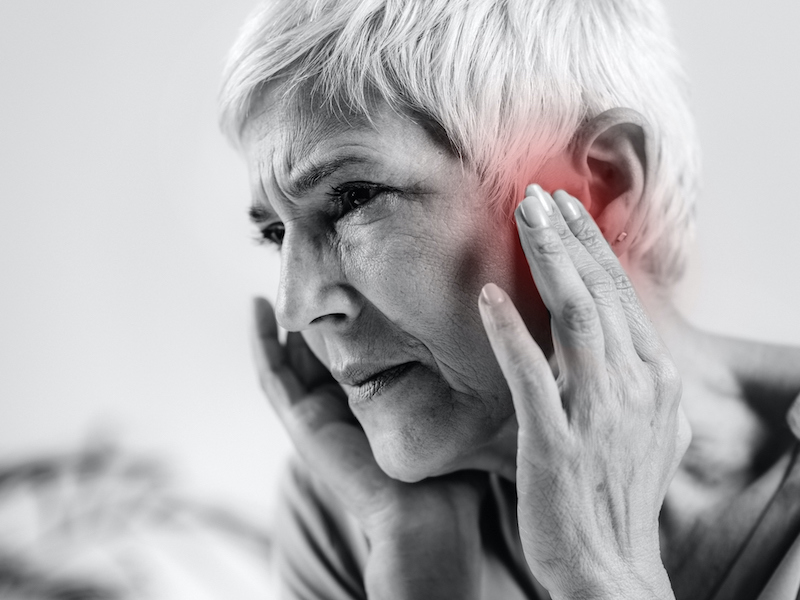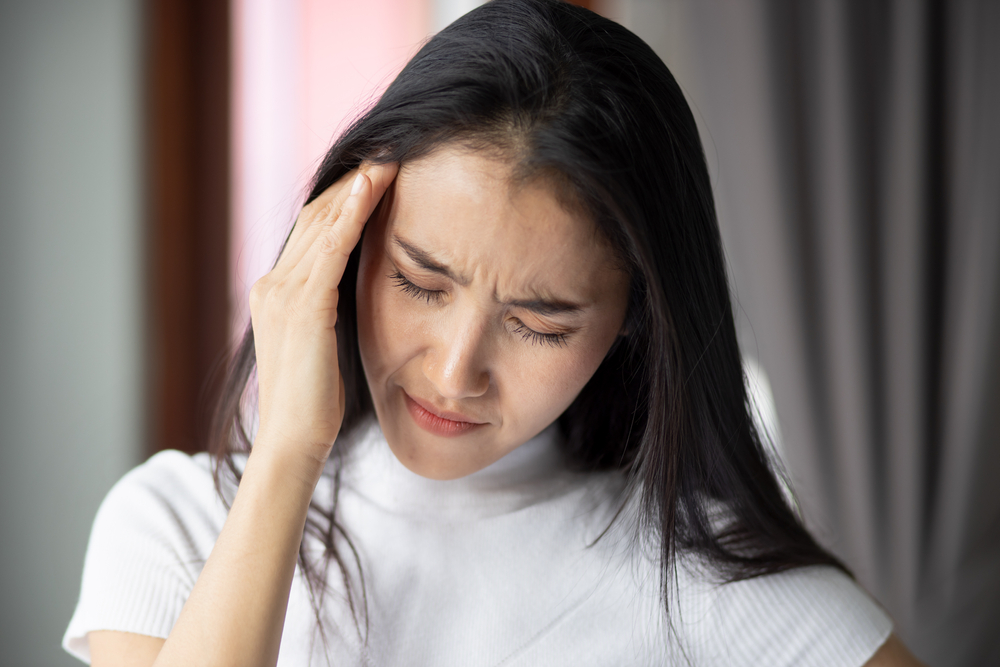Is the ringing in your ears getting worse? Stop doing these 12 things that aggravate tinnitus, and you may see an improvement.
If you have tinnitus, no one has to tell you how miserable it can be. Verging on painful, it makes it hard to hear, concentrate, relax, and enjoy life. Yet much as you’d like to get rid of it, you may be doing some things to worsen your tinnitus. So let’s look at 12 things that may make the condition worse.
1. You really need to turn the TV down: Loud noises are bad for tinnitus
It’s nearly impossible to avoid loud noises. That’s a fact. It doesn’t matter whether it’s part of your job, you’re mowing the lawn, enjoying a fireworks show, or just listening to the TV a little too loudly.
These and other loud noises cause permanent hearing loss. For many people, tinnitus, which is characterized as a ringing in the ears, is an early sign of hearing loss.
The good news is that you can take steps now to prevent further hearing damage from loud noise. You can start by wearing protection for your ears such as earplugs or earmuffs if you work in a loud environment or spend a lot of time at loud concerts. When you have a choice, try to spend less time in noisy places like nightclubs. And most importantly, never try to drown out noise with music because that just worsens things.
2. Frankie says relax: Stress makes tinnitus worse
Many of us have forgotten how to relax in today’s fast-paced world. We feel unproductive if we’re not always on the go or let unmanaged stress eat away at us instead of attending to our needs or addressing the underlying causes.
Take some “me” time. Do something you love. Allow yourself to take time off. Learn to meditate and exercise more to help manage stress naturally.
If these things aren’t helping, you might consider speaking with a mental health professional. Cognitive-behavioral therapy (CBT) is a treatment used to great success by many mental health counselors to help patients manage their tinnitus. While CBT doesn’t cure tinnitus or get rid of the ringing, patients learn how to recognize the negative thoughts associated with tinnitus and use the tools given them by the mental health professional to put a positive, realistic spin on those thoughts.
3. You’re taking drugs (No, not that kind): These medications make tinnitus worse
Many medications can cause and worsen tinnitus. These include drugs most people think are harmless, like over-the-counter pain medications and prescription opiates like Oxycontin or morphine.
In addition, research has shown that some diuretics, antidepressants, antibiotics, and cancer drugs can worsen tinnitus and cause permanent hearing loss. These drugs are known as ototoxic medications and could cause hearing loss. The good news is that tinnitus symptoms usually only last for as long as you’re taking the medication – the bad news is that some people need to take these drugs regularly for other health reasons.
4. Foods can make tinnitus worse for some people
Tinnitus is a warning sign. Often it’s telling you that something isn’t right. That something could be noise, stress, medications, or something else.
Oftentimes, it might just be the foods you’re eating – or not eating. To find out if your diet is the cause of the ringing in your ears, try keeping a food journal—note days when it’s worse, and you’ll likely find that you have some triggers. For instance, many people find that artificial sweeteners and caffeine make it worse.
Some people may find that the ringing in their ears is worse because they’re not getting enough iron in their diet, which may lead to iron deficiency anemia. This condition makes the blood pump harder throughout the body to ensure all the organs get the oxygen they need, often resulting in a rushing sound in the ears.
Because tinnitus can be affected by blood pressure, salty foods can also affect your tinnitus.
5. Your ears give Madame Tussaud a run for her money
No, your ears are not a world-famous wax museum.
Sometimes people get tinnitus because they are over-producing wax, which can happen when people try to clean their ears with a cotton swab.
Cleaning your ears with cotton swabs can push old, dirty wax that was on its way out of the canal back into the ear and cause your ear to react by producing more wax. Both of these things can result in a blockage of the ear canal, which can cause ringing in the ears.
When you use a cotton swab, make sure you only clean the outside of your ear. If you think you have too much wax build-up in your ears, you should schedule an appointment to have your ears checked.
6. Your blood pressure can make tinnitus worse
A common cause of tinnitus is elevated blood pressure, which affects the blood supply to the inner ear. This will cause more severe hearing loss over time and can be very difficult to reverse.
Take steps to get your blood pressure under control and keep it that way, whether through medication or other treatments. One of the biggest causes of high blood pressure is stress, so reducing your stress should help bring it down. While this sounds easier said than done, you may want to speak with a mental health professional about stress and anxiety management.
7. You’re watching the late, late, late show: Sleep deprivation and tinnitus
Insomnia can have many negative impacts on the body. So whether you’re skimping on sleep to get more done or unable to get the recommended 7-8 hours, it’s time to take action.
Start by keeping a behavior journal to track your daily routine and determine which activities may impact your sleep duration or quality. Some common culprits include:
- Caffeine or sugar in the late afternoon
- Drinking alcohol in the evening
- Not getting enough exercise
- Not managing stress
- Using devices that emit blue light, including TVs, phones, and tablets, right before bed
Once you’ve determined the cause or causes, you can take the proper steps to get yourself back on track and sleeping like a baby.
You may also find that your tinnitus symptoms are worse during the nighttime when you’re trying to sleep and that tinnitus itself is keeping you up. This is because tinnitus has no noise competition in a quiet bedroom, which makes it deafeningly loud. Try using a white noise machine to add some background noise while you sleep
8. Does alcohol make ringing in my ears worse?
Alcohol is a huge contributing factor to tinnitus and hearing loss. For many, a glass of wine with dinner or a nightcap is a simple luxury they’d rather not give up, but this one little thing could be making your tinnitus worse.
Alcohol not only increases tinnitus but over time it increases your risk of permanent hearing loss. Alcohol actually raises your blood pressure, which, as we covered earlier, affects blood flow to the ears, which can cause permanent cell death.
Make a note of when the tinnitus volume increases or becomes more noticeable. Does it coincide with an alcoholic drink? You may need to limit your liquor consumption to protect your hearing.
9. You’re still smoking? Yes, this affects your hearing too
Smoking rates have declined over the years, yet many still smoke. It can be tough to quit if you’ve been smoking for much of your life.
Here’s one more reason to re-double your efforts to kick the habit: It may be making your tinnitus worse. One study found that smokers are 15 percent more likely to suffer from hearing loss than non-smokers. Cigarette chemicals can harm the inner ear and constrict the blood vessels that carry blood to your ears, leading to ringing in the ears.
10. Why is my tinnitus worse when it rains? It might be the air pressure
Does the ringing in your ears get worse right before torrential summer rains? Or maybe it’s during the warm-up period at the end of winter when the buzzing of your tinnitus is hardest to ignore. Curiously, it’s not the precipitation or the temperature that might make your tinnitus worse. It’s the air pressure.
The fault lies in your inner ear. The fluid in your inner ear, after all, is designed to help you detect all kinds of changes (this is one way in which your ears help you keep your balance). But that fluid makes your inner ear especially sensitive to changes in air pressure.
When the pressure suddenly changes, your inner ear reacts–and this can cause a flare-up in your tinnitus symptoms. These flare-ups tend to be the worst in the Spring when drops in barometric pressure (often associated with strong weather fronts) are the most extreme. But changes in atmospheric pressure can also be common when you’re flying.
There’s no cure for tinnitus, of course, but keeping an eye on the weather could help you better manage any flare-ups in your symptoms. Likewise, if you plan to fly, you can plan some self-care accordingly to try to keep your tinnitus symptoms under control.
11. It isn’t just mood swings: You lack tinnitus relief because of depression and anxiety
Depression, anxiety, and mood disorders like them can sometimes worsen your tinnitus, especially when these underlying issues go untreated. That’s because your moods can have a genuine and physical impact on your physiology. For example, your heart rate can accelerate, and your blood pressure can skyrocket–you might start perspiring or shaking.
And those physiological reactions to anxiety, depression, or other mood disorders can exacerbate your tinnitus, as your ears can also be quite sensitive to changes in your body chemistry.
The interaction between a mood disorder and tinnitus can be particularly potent when the two conditions conspire to create a vicious cycle. A tinnitus flare-up, for example, can cause an increase in anxiety, which can lead to an escalation of your blood pressure. When your blood pressure goes up, the ringing in your ears can become louder, more profound, and more painful. And as your tinnitus symptoms become more severe, your anxiety builds. It’s a cycle that can worsen your tinnitus symptoms in the short and long term.
The best way to manage this cycle is to ensure you’re correctly treating both your tinnitus and any mood disorders you might have.
12. Ignoring your treatment options
There’s no known cure for tinnitus, but there are treatments and strategies you can employ to manage your symptoms. Knowing what could cause a tinnitus flare-up can help you plan which behaviors, situations, or activities you might feel better avoiding. That kind of planning can help you manage your tinnitus symptoms and maintain your quality of life.
For many, finding tinnitus relief will involve following through with their prescribed treatment options.
To be sure, tinnitus relief is not the same thing as a cure for tinnitus–for the very simple reason that there is no such thing as a cure for tinnitus. But the more you commit to your treatment, the more effective it becomes. That’s true of:
- Wearing a hearing aid: A hearing specialist can help you find a hearing aid that could minimize some of your tinnitus symptoms.
- Eating well: Certain dietary choices can help you lower your blood pressure or limit inflammation, which can be good for your tinnitus symptoms.
- Practicing behavioral therapies: Many tinnitus symptoms rely on cognitive behavior therapies; practicing those therapies can help make them more effective.
Talk to your hearing specialist about other ways you might be able to improve your response to tinnitus symptoms. For example, tinnitus relief might start with not making your tinnitus worse; but with the right treatment, you could find ways to improve your tinnitus symptoms.
Can acupuncture make tinnitus worse?
There have been several research studies on the effects of acupuncture on tinnitus. Some research indicates that acupuncture can help reduce the severity of tinnitus in people whose tinnitus stems from issues in the inner ear. While still mostly positive, other research has had mixed results and may be slightly biased. Acupuncture has been shown in multiple studies to help people reduce stress and lower their blood pressure, both of which seem to be related to tinnitus. If, however, the thought of needles increases your blood pressure, this might not be the best option for you.
Don’t let the ringing in your ears get worse. Instead, start improving your tinnitus today.
If you take steps to address the underlying causes of tinnitus symptoms, you’ll most likely get relief and slow the progression of hearing loss.
But even if you start making these changes, schedule an appointment to get your hearing tested and talk about solutions for treating or managing tinnitus. You may be surprised at the advanced options available.



